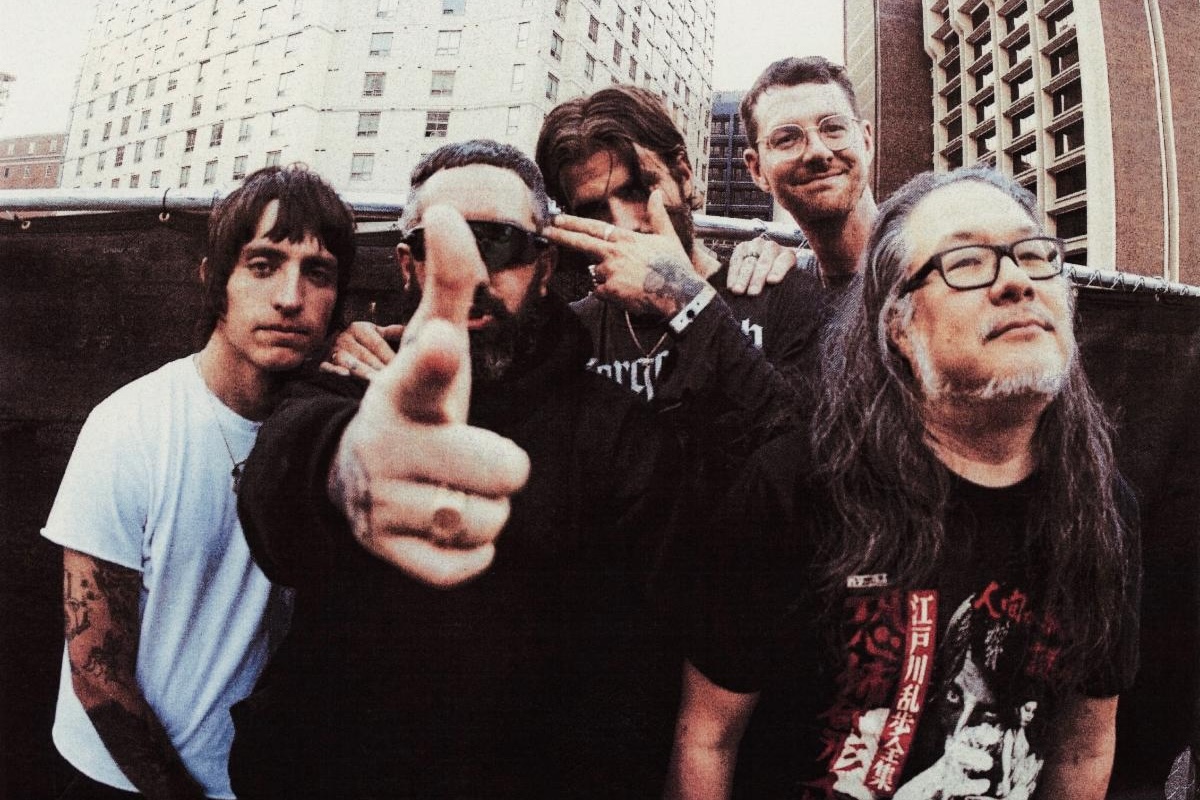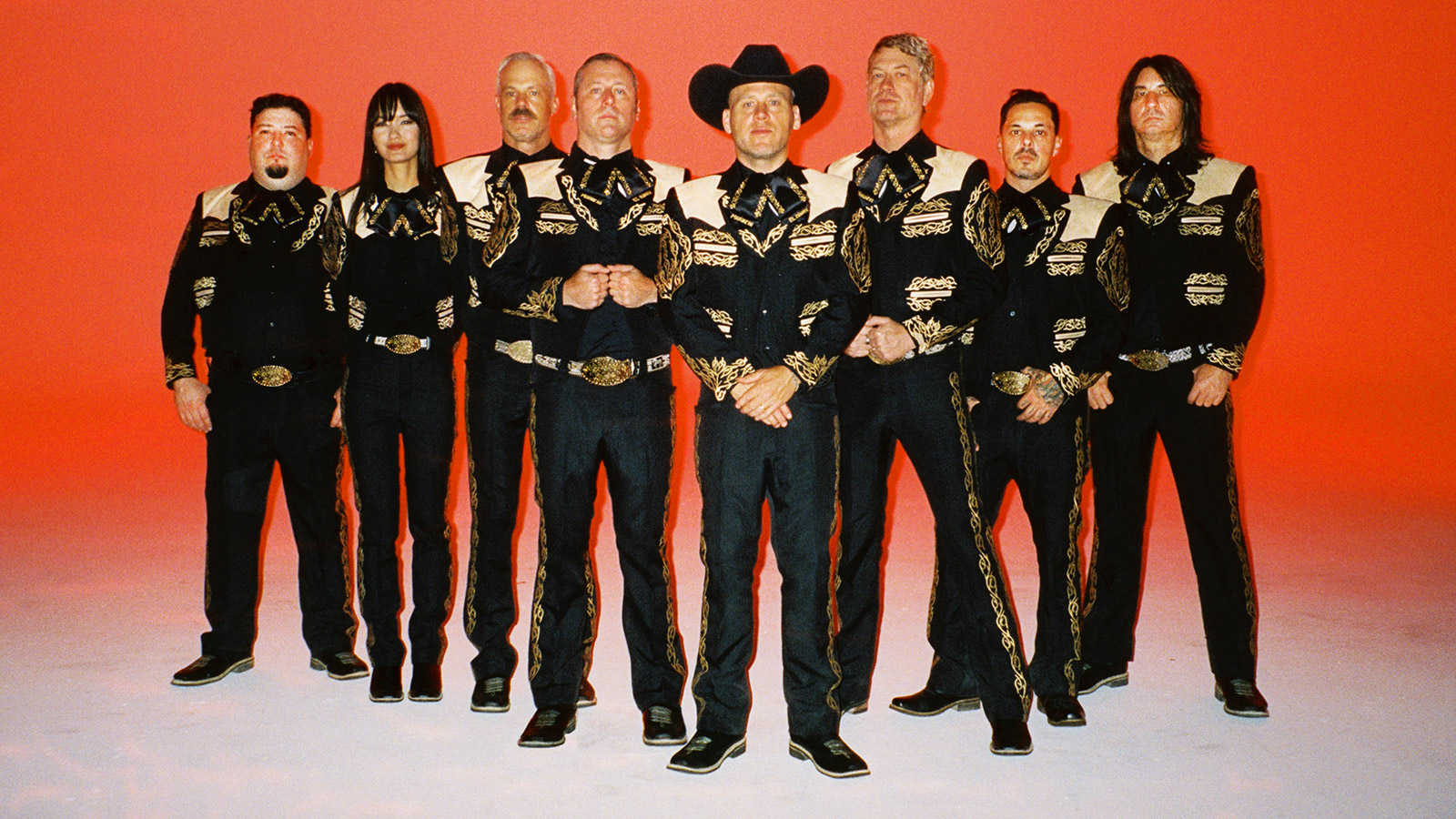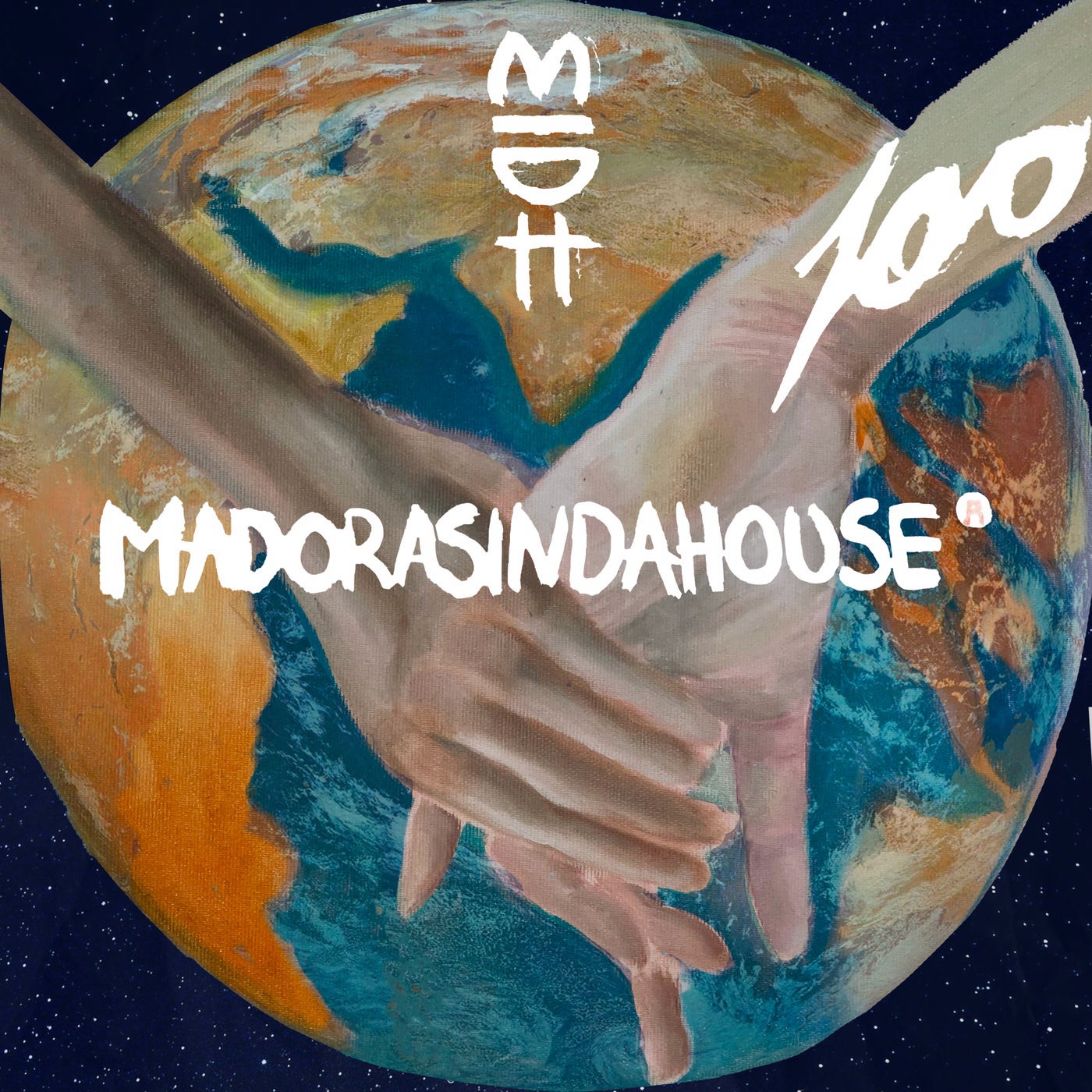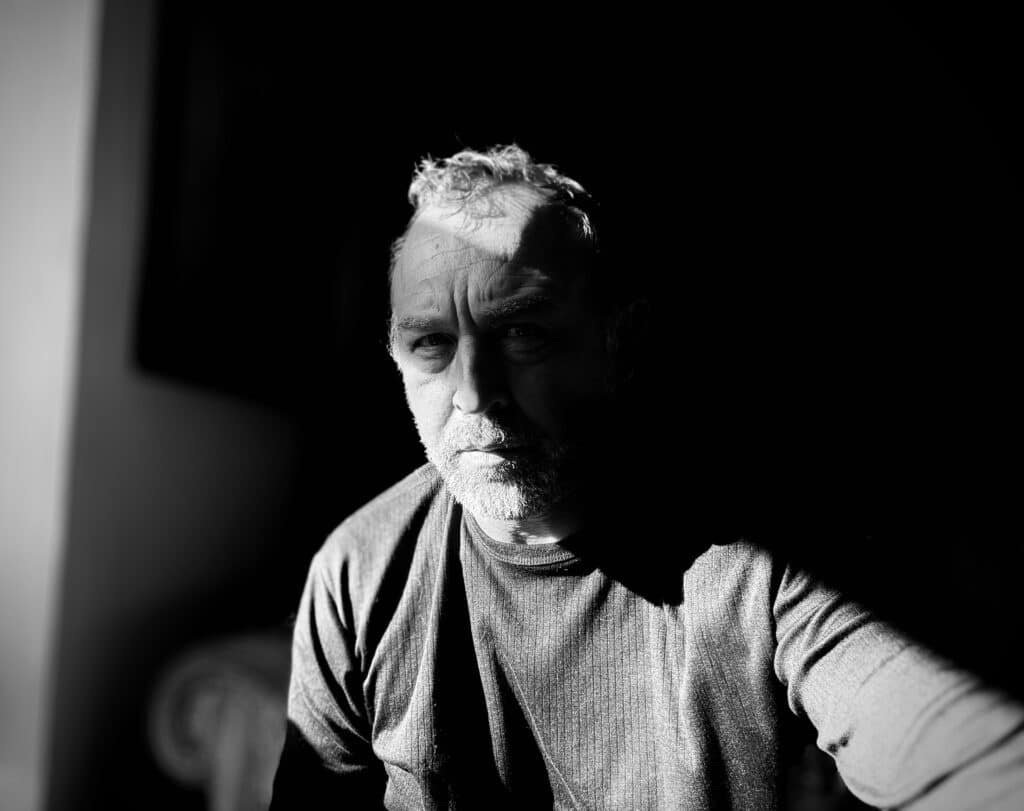Danny Brown was seriously considering quitting music as he took a swig of his final drink and boarded the plane to rehab. “I didn’t love myself at the time, so it was impossible for me to love anything else”, he tells NME from his house in Texas. Rehab would give him ample time to reflect; it would be the most isolated he’d been since his eight-month stint in jail as a teenager in Detroit.
This time, there was one crucial difference. Back in jail, Brown had to be content with printed MF DOOM lyrics for music. But in rehab, he had access to his phone for 30 precious minutes. Every day for eight weeks straight, Brown would sit outside, smoke cigarettes and listen to 100 Gecs: “I was like, ‘This shit is fire!’” As he speaks, you can practically hear him grin down the phone.
Rap’s resident oddball is soon to release his new album ‘Stardust’ – a pivotal change in his sound and process. For one, it’s the product of his long-awaited pivot to hyperpop, spanning the genre’s sleazier permutations (Frost Children) to brutal digicore (Underscores) and bright bubblegum bass (8485). It’s also Brown’s first album made entirely sober – a huge change from when he last told us he’d drop acid and hit record. ‘Stardust’ asks: can Danny Brown recover the magic?
In 2012, Brown was emerging as a fearlessly innovative rapper. He would release his major label debut ‘Old’, which saw him teeter from haunted East Coast beats to manic EDM trap bangers, and collaborate with soon-to-be megastars like Charli XCX and A$AP Rocky. It was a dark party album, one that saw Brown proclaim: “Won’t live for anything, but might die for nothing”.
When Brown returned to making electronic music, he struggled to reconcile its sound with his new sober lifestyle. “The message wasn’t coming from the best place at the time, so I always associated the message with that style of music,” he explains. “I felt like that wasn’t a part of me no more because I’m not partying and doing drugs.”
Something clicked when Brown exited rehab. With his phone back in his possession, Brown’s algorithm had completely altered. Soon, he was discovering artists like Underscores, who enlightened him to a new way of experiencing electronic music.
“When I started to hear shit like Underscores and see that their songs were way deeper than the soundscape, you’re like, ‘Oh shit, they really got something to say’,” he reasons. “I felt that same way with the approach to this album: I want to have fun, but I still have to have something to say.”
Making ‘Stardust’ also helped Brown approach hyperpop in ways his mentality wouldn’t allow before. Though his earliest dabble with the genre was with Dorian Electra in 2021, Brown reminisces about discovering pioneer SOPHIE’s 2014 single ‘Bipp’, which he believed was “where grime was gonna go next”. He would have collaborated with her, too, if it weren’t for one Vince Staples.
“Maybe [I’ve] been bottled up for so long, being fucked up and making music out of my mind”
“Vince Staples started working with SOPHIE, and I remember being like, fuck – he did it, now I can’t do it,” he laments. “That’s one of the things I feel really bad about; I wish I had the chance to work with SOPHIE. I had a moniker with this album: ‘Make SOPHIE proud’, I wrote that in all my notebooks.”
Though Brown would work with Dylan Brady of 100 gecs and PC Music founder A.G. Cook for the record, he felt none of the music fit (“The song is going to get used somewhere else,” he promises us). Instead, Brown was more attracted to the newer wave of digicore, and it was Jesse Taconelli – co-founder of deadAir Records and Quadeca’s manager – who’d introduce Brown to many of his future features.
Not only did Taconelli serve as Brown’s “personal A&R”, he was also responsible for a key element in Brown’s creative process for ‘Stardust’. As he searched for a way to “not just trauma dump”, Taconelli suggested he create a character. Brown eventually called it ‘Dusty Star’, likening it to Prince’s semi-autobiographical approach on ‘Purple Rain’.
“He goes into rehab, he’s done with music. If you listen to ‘Quaranta’, that’s like the prequel,” Brown explains. “I had to go into a different mode and write from a different perspective, especially with the soundscape, so I created this ’90s-era popstar”.
 Danny Brown credit: Ariel Fisher
Danny Brown credit: Ariel Fisher
Working with the “genius” Angel Prost of Frost Children, Brown was inspired to lean further into the character. The duo were early producers of ‘Stardust’, and when he asked Prost to record a poem for ‘Starburst’, Brown was enamoured with her verse. “It triggered my direction in my songwriting. I would record the song, and I was like, ‘Can you do another one for me?’ Before you know it, it took on a life of its own.”
Prost’s poems, Brown explains, are like fanmail – love letters that convince Dusty Star to come back to music. “In the beginning, he’s all about the money and this and that, but he finds his purpose by the end of the album.”
As Danny Brown ventured deeper into making ‘Stardust’, he realised he needed to completely relearn how to write music. To do so, he turned to Julia Cameron’s The Artist’s Way – the famous guide on unlocking creativity and building artistic self-confidence. He liked it even more when he discovered the book was inspired by Cameron’s journey with recovering from addiction: “I already resonated with that, because that’s why I’m reading this fucking book!”
So Brown did the exercises. He wrote his morning pages, took himself on artist’s dates. “It really helped – I found my process within that,” he says. That process was encouraged by longtime friend Quadeca, who crashed with Brown for a week of recording sessions. “I was still in my sobriety stage where you’re just an open book, so everybody turns into a meeting,” Brown laughs knowingly. “I’m opening up and telling him about what I’m proud of and what I’m not proud of, he’d be like – ‘That’s the song right there!’”
“This is my take on a pop album, and everybody’s like, this is still some weird shit!”
Quadeca would make a beat on the spot and hand Brown the demo. He’d listen to it for two to three hours before he would go to sleep, the music coursing through his dreams. By the time he woke up, Brown would write his verses in 10 minutes flat. “I would record the songs and he’d be like: ‘What the fuck? You just wrote that?’” Brown remembers. “I was like, I don’t know… maybe it’s been bottled up for so long, being fucked up and making music out of my mind.”
As Brown rediscovered how to make music, he was re-evaluating how he could push rap forward – and oddly enough, it was by sticking to time-tested principles. “I’m from old school hip hop, I listen for shit that ain’t nobody else about to rap on, but it’s dope to me,” he explains. “But sometimes, I think I’m doing normal, cool shit. Like, this is my take on a pop album, and everybody’s like, fuck no, this is still some weird shit!”
In trusting his gut, Brown eventually strayed beyond the realm of hyperpop into other genres that complemented his madcap energy. Whether it’s the relentless gabber of industrial artist JOHNNASCUS on ‘1999’, or trap metal gem ISSBROKIE going toe-to-toe with Brown on ‘Whatever The Case’, you get the sense Brown truly finds his home on ‘Stardust’.
That’s all the more refined with the eight-minute epic ‘The End’, produced by Cynthoni (formerly Sewerslvt) – an elusive producer who ushered in a new wave of visceral, provocative breakcore in the early 2020s. “They capture an emotion without lyrics, it’s amazing,” Brown gushes. “I knew I had to open up and talk about something that was real emotional to me, and me and my battles with sobriety, that’s been the core of my music for so long.”
When Brown dropped ‘Quaranta’, he told us that he wanted “to help people and make them feel good with my music”. He reasserts his mission to us now; he’s gotten countless messages from people who he’s inspired to sober up. Though he says he’s smoking weed, he won’t drink or do hard drugs again: “I put this album out for everybody – it’s for the fans, man. I would let them down by failing.” Somehow, Brown is unfazed by how much pressure he’s putting on himself. “I know I’m not going to fuck up,” he says firmly. “I have a bigger purpose in life.”
Earlier, Brown wasn’t always so comfortable in his skin. He was rather shy as a child; his rap career never took off until he embraced his weirdness in his thirties. “That’s when I stopped trying to be like everybody else and realised I could be myself,” he recalls. Listening to him talk about the making of ‘Stardust’ and its results, it feels like a necessary reminder of that principle. Danny Brown wondered whether he could remake the magic; the answer was just patiently waiting to be created.
Danny Brown’s ‘Stardust’ is out on November 7 via Warp Records



















 English (US) ·
English (US) ·